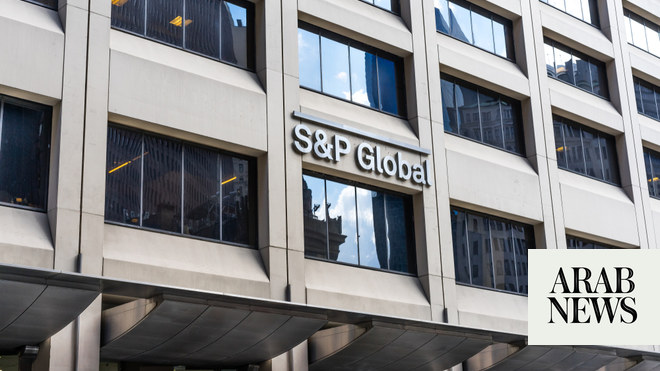
RIYADH: The UAE’s non-oil sector growth remained stable in September, with the Purchasing Managers’ Index dipping slightly to 53.8 from 54.2 the previous month, according to S&P Global.
Although the index remains well above the neutral 50 mark, this reading is the second-lowest in three years, only surpassing July’s figure of 53.7.
The PMI decline was primarily driven by a slowdown in new orders and reduced job creation.
Despite indicating robust gains, rates of growth in activity and new business across the non-oil economy receded in September.
David Owen, senior economist at S&P Global Market Intelligence, said: “The UAE PMI continued to show a loss of momentum in the non-oil private sector, with growth having softened considerably since the start of the year.”
He added: “Businesses faced further challenges with the completion of new work, despite a slowing of sales growth and a strong uplift in purchases.”
Owen also highlighted the impact of competitive pressures, stating that “tougher market conditions have led to a more cautious outlook for the upcoming year — output expectations are now at their lowest since early 2023.”
Although business activity rose in September, it did so at the slowest pace since the same month of 2021.
Nevertheless, new business levels for non-oil firms increased sharply, bolstered by a solid rise in export sales and favorable local market conditions.
“Firms opted to maximize revenues while sales are still strong, as output charges rose at the fastest rate for over six-and-a-half years,” said Owen.
Although cost pressures remained significant, he added there are signs of easing inflationary trends compared to recent months.
The report also indicated a robust expansion in Dubai’s non-oil private sector. Overall activity levels increased at the fastest pace in four months, even with a slower rise in new business volumes.
“The expansion led non-oil businesses to increase staffing and inventories to greater degrees than in August. Supplier performance also improved, though to a lesser extent amid reports of customs delays,” stated S&P Global.
Kuwait PMI rises
In a separate report, S&P Global revealed that Kuwait’s PMI rose to 50.3 in September from 49.8 in August, indicating a modest expansion in new orders.
The analysis indicated a return to growth in employment and increased business confidence among non-oil private sector companies.
Andrew Harker, economics director at S&P Global, said: “While new orders expanded and firms raised output, growth rates are not what they were earlier in the year. It was good to see employment return to growth, but here too the rate of job creation was only marginal.”
The report noted that price discounting and marketing efforts contributed to further expansion of new orders in September, while new export orders continued to rise steadily.
Additionally, the analysis highlighted that purchase stocks returned to growth in September after pausing in August.
“On the whole, companies continued to do a good job of limiting price rises to customers, but this again came in the face of sharply rising input costs, suggesting that there is some pressure on margins. It therefore remains to be seen how long firms will be able to maintain competitive pricing policies,” added Harker.
Egypt’s businesses deteriorate
Meanwhile, Egypt’s PMI fell to 48.8 in September from 50.4 in August, signaling weakened business conditions due to rising pressures that dampened sales.
“As cautioned as a possible risk last month, rising price pressures curbed the non-oil private sector’s recovery in September. With input cost inflation at a six-month high and output charges rising accordingly, albeit to a softer degree, firms reported this having a dampening effect on customer orders, leading them to scale back business activity,” said Owen.
According to the report, non-oil companies in Egypt reported a solid reduction in their activity levels in September, reversing the first uplift for three years in August.
Despite this downturn, the report indicated sustained improvements in purchases and employment levels.
“There were some positives from the latest data, however, namely that firms continued to increase their buying levels and staffing. The expansions suggest there is still some hope that the non-oil sector could bounce back in the fourth quarter,” added Owen.
The report concluded by saying that business confidence in the 12-month activity outlook remained positive in September, although the degree of optimism softened from August and was the lowest in three months.












